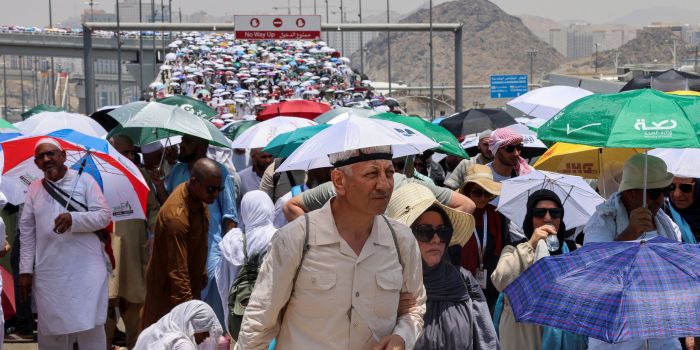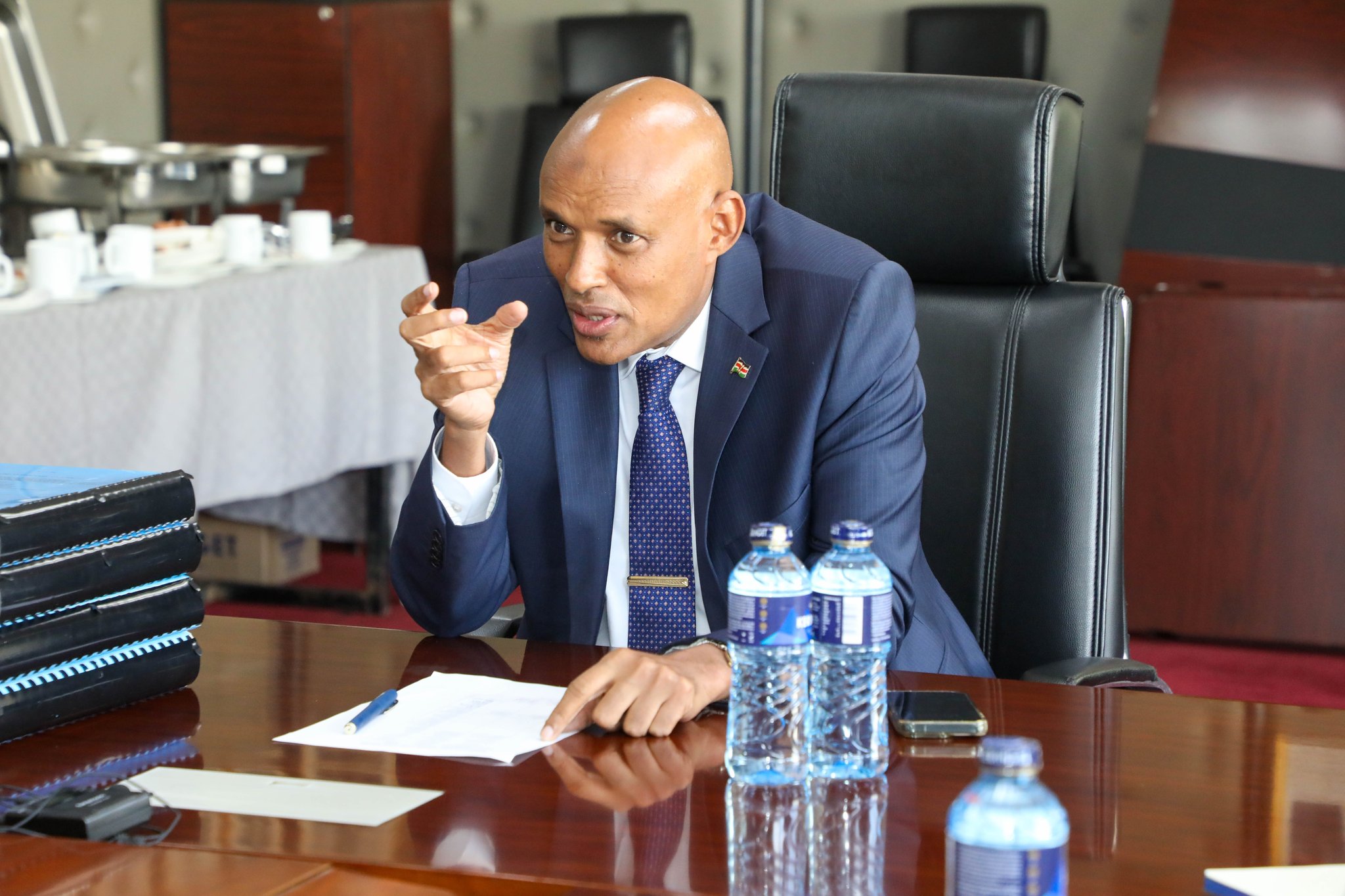Heat wave kills more than 1,000 pilgrims in Saudi Arabia

It is feared that the death toll could be higher, as more than half of the victims were unregistered worshippers who performed the pilgrimage in extreme heat.
At least 1,081 people died during this year's Hajj pilgrimage to Mecca in Saudi Arabia as temperatures in the region soared to 51.8 degrees Celsius.
It is feared that the death toll could be higher, as more than half of the victims were unregistered worshippers who performed the pilgrimage in extreme heat.
More To Read
According to The Guardian newspaper, the deaths reported by Thursday included those of 658 Egyptians and 630 unregistered pilgrims.
"About 10 countries have reported 1,081 deaths during the pilgrimage, one of the five pillars of Islam that all Muslims with the means must complete at least once. The Hajj, whose timing is determined by the lunar Islamic calendar, fell again this year during the oven-like Saudi summer," the newspaper reported.
The unregistered victims include those unable to join the Hajj through regular channels due to the high cost of official permits.
Without permits, they would have lacked access to the air-conditioned spaces provided for the 1.8 million authorised pilgrims to cool down.
Country actions
In the case of Somalia, the government has confirmed the demise of at least six pilgrims during Hajj, via the Hajj Affairs Office, which is headed by Khadar Dahir.
”Six of our pilgrims, including elderly individuals, have lost their lives during the Hajj pilgrimage. The extreme heat this year has made the pilgrimage particularly challenging,” he said in a media address in Saudi Arabia, as reported by Mustaqbal Media.
Pakistan and Indonesia also confirmed more deaths on Thursday, alongside countries including Somalia, Tunisia, Sudan, Senegal, Malaysia, Jordan, India, Iran, and Iraq.
Pakistan had about 150,000 pilgrims, out of whom 58 had been confirmed dead by Thursday, while Indonesia had 240,000 pilgrims, 183 of whom succumbed to the heat wave, its religious ministry said on Thursday.
Some countries have taken action following the deaths, among them Egypt and Tunisia.
Egypt's President, Abdel Fatah al-Sisi, has ordered that a "crisis cell" headed by the prime minister follow up on the deaths of the country's pilgrims.
"There is a need for immediate coordination with the Saudi authorities to facilitate receiving the bodies of the deceased and streamline the process," he said in a statement from his office.
Tunisian President Kais Saied sacked Brahim Chaibi, the minister of religious affairs, following widespread criticism after the deaths of dozens of citizens taking part in the pilgrimage, the presidency said on Friday.
Saudi's statement
The Saudi Arabia National Meteorological Centre reported a high of 51.8 degrees Celcius this week at the Grand Mosque in Mecca.
Saudi state TV said temperatures rose on Monday to as high as 51.8 degrees Celsius (125.2 Fahrenheit) in the shade at the Grand Mosque.
A Saudi health official, speaking to Reuters on Monday before many of the deaths were reported, said that authorities had not noticed any unusual fatalities among Muslim pilgrims amid the extremely high temperatures. The ministry had so far treated more than 2,700 pilgrims who suffered from heat-related illnesses, the official said.
The annual pilgrimage began last Friday and ends on Wednesday.
A total of 1.8 million people were expected to take part in the pilgrimage this year, according to the Saudi General Authority for Statistics.
Kenya's case
Kenya sent a team of 300 pilgrims at the beginning of the month, who arrived safely with no report of incidents announced by the Kenyan Embassy in Riyadh.
"Hajj is one of the key pillars of the Islamic faith. Every year, nearly 4 million pilgrims from around the world descend on the holy cities of Makkah and Medina in Saudi Arabia, where Islam's holiest shrines are located. Among these pilgrims are thousands of Kenyans," the embassy notes on its website.
To ensure safety and security, the Saudi Government's Ministry of Hajj and Umra issues stringent regulations and procedures to be followed without exception.
"In the case of Kenya, the Supreme Council of Kenya Muslims (SUPKEM) through the Kenya Hajj Mission manages Kenyan Pilgrim's participation in the Hajj," the embassy adds.
"To adhere to the strict deadlines and requirements of the Ministry of Hajj and Umra, all Kenyans are requested to familiarise themselves with the rules and regulations shared by SUPKEM and issued by the Ministry of Hajj and Umrah of the Kingdom of Saudi Arabia on their website."
During the COVID-19 pandemic, the annual pilgrimage recorded limited attendance as Kenyans were among the countries blocked from visiting Mecca, where the prayers take place, with those attending having to show evidence of medical insurance cover for treatment in case of infection while in the country.
Hajj is marked in the first nine days of the month, which culminates in the Eid-Ul-Adha or Festival of Sacrifice, on the 10th day.
Top Stories Today

















































